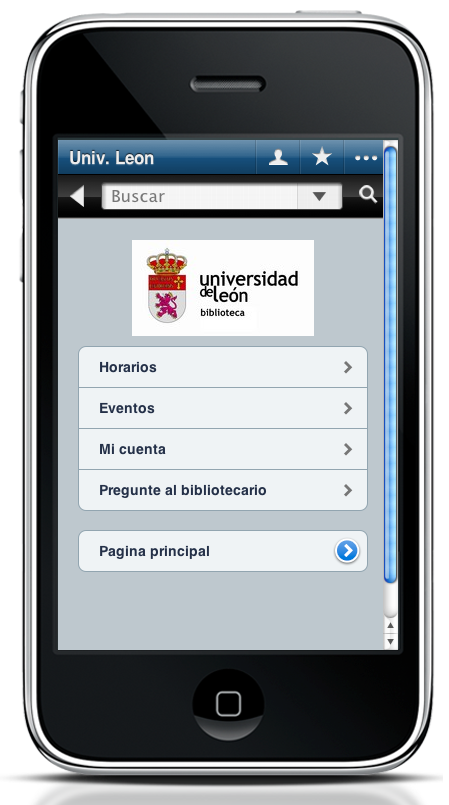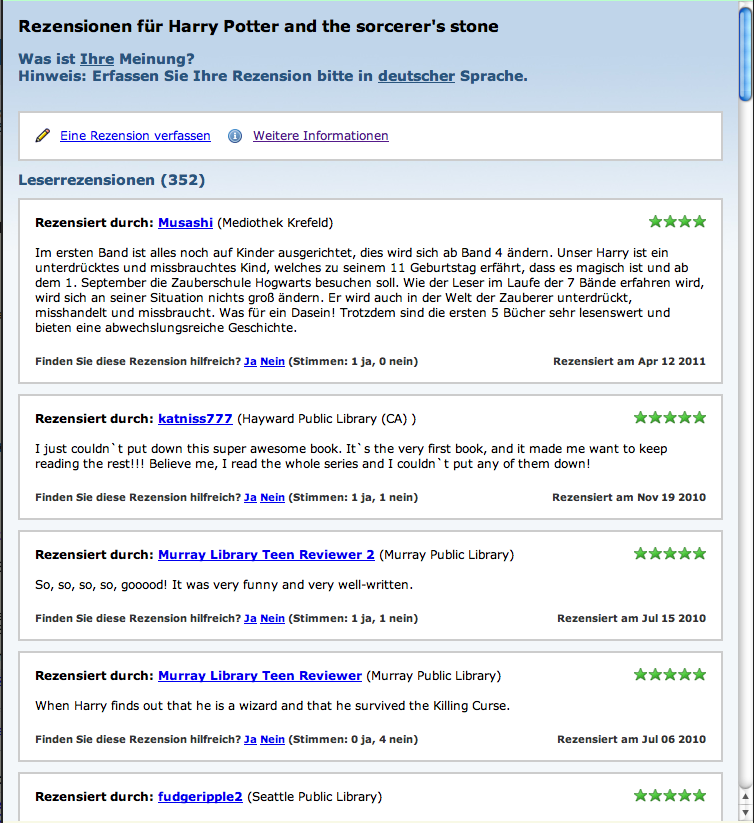
LibraryThing is pleased to sit down this month with award-winning translator and scholar Karen Emmerich, an associate professor of comparative literature at Princeton University whose focus is on modern Greek literature and on the theory and practice of translation. Her 2017 study, Literary Translation and the Making of Originals, examines translation as a process which goes beyond the transmission of an original work from one language to another, one which transforms and expands the work into its new language. Her own translations include Good Will Come From the Sea by Christos Ikonomou (2018), Before Lyricism by Eleni Vakalo (2016), The Scapegoat by Sofia Nikolaidou (2015), and Why I Killed My Best Friend by Amánda Michalopoulou (2014), among many others, and she has been the recipient of translation grants and awards from the NEA, PEN, and the Modern Greek Studies Association. In 2019 she won the National Translation Award for What’s Left of the Night by Ersi Sotiropoulos. Emmerich’s new translation of Alki Zei’s 1963 novel, The Wildcat Behind Glass, which follows the story of a family in 1930s Greece that is torn apart by the rise of fascism, and which is considered one of the classics of modern Greek children’s literature, is due out this coming May from Restless Books.
Before we get to issues of translation, talk to us as a reader. What was your reaction when you first read The Wildcat Behind Glass? What makes Alki Zei’s story so powerful that her book has become a classic?
I first read the novel many years ago, as part of my research for a different translation: Amanda Michalopoulou’s Why I Killed My Best Friend, which tells the coming-of-age story of two young girls in Greece in the 1970s and 1980s who are growing into their friendship and also into lives of leftist political engagement. Alki Zei’s The Wildcat Behind Glass, written in the 1960s and set in 1936, is a key point of reference for the two girls in their political awakening. So from the start I understood Zei’s book not only as part of a tradition of politically engaged literature for children, but also as a widely-read “classic” with the power to shape children’s experiences of their current realities. I immediately fell in love with The Wildcat Behind Glass, and I’ve been wanting to translate it ever since.
Zei’s novel has so many things to recommend it: crisp, engaging writing; a story that pulls you in and keeps you moving in unexpected directions; compelling characters; and social and political commentary that feels incredibly important in our current moment, which is witnessing such a distressing erosion of democratic structures. For me, a book for young readers dealing with the rise of fascism in Europe in the 1930s felt like an important project to undertake.
Can you describe your translation process? Imagine you’re speaking to someone who has never translated a sentence in their life before. Where do you start, and how do you proceed?
I always read a book through a few times first. Then I sit with it for a while and try to think about what kinds of other texts I want my translation to be in dialogue with, and what kinds of readers I hope will find their way to it. What kinds of conversations do I want the book contribute to? What different readerships will it touch? How can I best serve those readers and conversations with my translation? I find that it helps if I imagine really specific readers—actual people I know in the world.
When I have a sense of these general goals, I sit down with the book propped on a bookstand beside me and just dig in. I try to translate all the way through a text as quickly as I can, not worrying too much about the specific choices of particular words or phrases—I’m mostly trying to get a feel for the language I’m going to be using in the translation, the register, the tone, the pacing, the rhythm. Then I revise. All of my translations go through many, many, many drafts. For much of the time, I put away the Greek and focus on the English, trying to make it the best version of itself that I can. Then I pull the Greek back out and make sure I’m keeping my text aligned with what I think the Greek is doing, both in local choices and in overall approach.
Toward the end of the process, I always bring in other readers to let me know how the translation lands with them. With this translation, I was very lucky to get to share the book with a few of my (undergraduate and graduate) students, as well as with my daughter (5 at the time), my nephews (7 and 9), and a friend’s daughter (12), all of whom gave me fantastic feedback about some of my translation choices—feedback I then incorporated during further rounds of edits. It was very exciting to be able to do that, since they were some of the readers I was imagining when I first set out to translate the book.
Most of the books you have previously translated are works of literature for adults. Are there differences between working on a children’s book and working on one for adults, issues that need to be considered when translating for a juvenile audience?
First of all, I would say that I hope this book is widely read by readers of all ages; I don’t think of it as a book that is strictly for juvenile audiences. But yes, I did face many issues when trying to take those younger readers into consideration—and the feedback I got from my young family members, students, and friends was so helpful. For instance, in most of my translations, I use dashes rather than quotation marks to indicate dialogue, as is standard in Greek. It’s a technique that’s not unheard of in U.S. fiction for adults, but my younger readers for The Wildcat Behind Glass found it confusing, so I introduced quotation marks instead. Similarly, I chose to translate honorifics into more standard English terms of address, where I might not have for an older audience. Because it’s a historical novel, written in the 1960s and taking place in the 1930s, I also felt like I was balancing a desire for the book to be comprehensible to a wide range of readers with a desire for it to have some flavor of the past in its language. I wanted the translation to be an exciting read, but also not to feel entirely contemporary, to have a sense of historicity. I hope I got the balance right!
In your study, Literary Translation and the Making of Originals, you look at the translation process as one of transformation, one in which the translator adds something to the work. What do you feel you added to Alki Zei’s work? How will the Anglophone reader’s experience of your translation differ from the Greek reader’s experience of the “original?”
I think what I added to Alki Zei’s work is, quite simply, a new English version that can be read by people for whom English is a more comfortable language to read in than Greek, or than any of the many other languages in which Zei’s novel has been translated. I don’t think there is any single way that Anglophone readers will experience the book, or that Greek readers experience the book, either. That said, the Anglophone reader is probably less likely to come at the book with a sense of it being a “classic,” and with less of a sense of the specific place and historical context in which it is set. I suspect that many younger readers of the book in the Anglophone context might know Greece best from the Percy Jackson books. I hope The Wildcat Behind Glass will open up new conversations among these readers about a place and a history I care deeply about. I also hope it will make them want to get their hands on more of Zei’s books, more literature coming out of Greece, and more translated literature in general.
The Wildcat Behind Glass has been translated into English before. In fact, Edward Fenton’s 1968 translation was awarded the American Library Association’s Mildred L. Batchelder Award, which recognizes the best children’s books translated into English. Was it at all intimidating to approach a work that had already been translated to some acclaim? Did you read Fenton’s translation before beginning your own?
Yes, I did read Fenton’s translation. It was out of print at the time, and even before I considered retranslating the novel, I thought maybe I could simply find a publisher who would want to reprint Fenton’s text. But when I read the translation, I realized I really just wanted to make my own. Fenton’s translation is great—but I also felt like I could create a new translation that would land differently, more vibrantly, with a current generation of readers. I had already made what felt like an importantly different choice in how to translate some key words quoted from the text in Michalopoulou’s Why I Killed My Best Friend—made-up words the two sisters share as a kind of secret vocabulary—and so I knew my tack would be quite different. I also think it’s great to have more than one translation of a work of literature out there in the world: that way readers can compare translations and see more easily what stance each of the translators is taking, the
choices they’re making.
What do you find the most rewarding about your work as a translator? The most challenging?
I love almost everything about the process. I love reading with the close attention to the structures and details of a text that translation requires. I love the research aspect of the job, too, the rabbit holes you can fall down trying to understand certain moments in a text. I love solving language puzzles, and figuring out how to make English do things it might not have done before. I also really love being part of a community of translators working between many different language pairs; it’s an incredibly generous, caring, and mutually supporting community. There are, of course, many challenges, as well, both textual and extra-textual. For instance: trying to advocate for equitable labor conditions for translators, for adequate recognition of translation as both creative and intellectual labor, for increased diversity both in the field of translation and in the realm of translated literature, and for the place and value of cultural products from elsewhere and/or first written in other languages. Because all that is part of the job, too.
Tell us about your library. What’s on your own shelves?
I live in a small NYC apartment, so I’ve gotten about as economical as I can with my books. It’s one reason why I feel very grateful to have access to a great university library, as well as to the amazing Brooklyn public library system: I can read so much more literature than I could ever possibly hope to keep in my home! But I do still have lots of Greek literature, translated literature from other languages (I subscribe to a few presses that specialize in literature in translation, like Archipelago Books, so I get their entire catalogues each year), literary criticism and theory, and books about translation. My daughter is 6 so we also have a pretty huge collection of her books—including tons of great new books in translation, from presses like Elsewhere Editions and Enchanted Lion.
What have you been reading lately, and what would you recommend to other readers? Are there specific translators and translations you recommend?
Frankly, most of my recent reading is probably not of much interest to a wide audience! I’m writing an academic book about citizenship and forms of literary belonging in the modern Greek context, so I’ve been reading a lot of scholarly material on legal and political systems of inclusion and exclusion, which I find fascinating but are perhaps a bit off the beaten path for most. As for translators and translations, there are too many beloved texts and translators for me to mention all of them here, so I’ll just stick to a few recent reads. From the Archipelago subscription, two of my recent favorites are Chi-Young Kim’s translation of Cheon Myeong-Kwan’s The Whale and Maureen Freely’s translation of Sevgi Soysal’s Dawn—very different books, neither an easy read, but two incredibly careful and inspiring translations. I also love Sophie Hughes’s recent translations of Fernanda Melchor’s work, published by New Directions. And in the context of the genocide happening in Gaza, I also must recommend Elisabeth Jaquette’s stunning translation of Adania Shibli’s Minor Detail.










